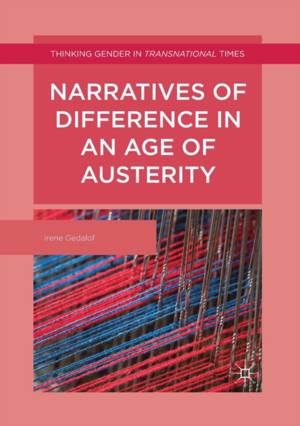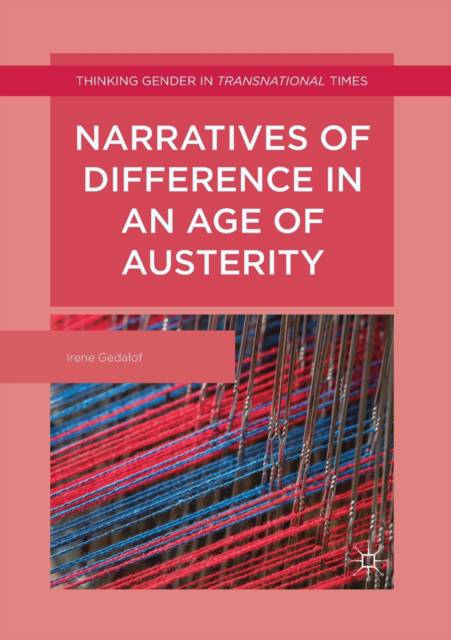
Je cadeautjes zeker op tijd in huis hebben voor de feestdagen? Kom langs in onze winkels en vind het perfecte geschenk!
- Afhalen na 1 uur in een winkel met voorraad
- Gratis thuislevering in België vanaf € 30
- Ruim aanbod met 7 miljoen producten
Je cadeautjes zeker op tijd in huis hebben voor de feestdagen? Kom langs in onze winkels en vind het perfecte geschenk!
- Afhalen na 1 uur in een winkel met voorraad
- Gratis thuislevering in België vanaf € 30
- Ruim aanbod met 7 miljoen producten
Zoeken
Omschrijving
This book traces the narrative strategies framing austerity policies through an illuminating analysis of policy documents and political discourses, exposing the political consequences for women, racialized minorities and disabled people. While many have critiqued the ways in which austerity has captured the contemporary political narrative, this is the first book to systematically examine how these narratives work to shift the terms within which policy debates about inequality and difference play out. Gedalof's exceptional readings of these texts pay close attention to the formal qualities of these narratives: the chronologies they impose, their articulation of crisis and resolution, the points of view they construct and the affective registers they deploy. In this manner she argues persuasively that the differences of gender, race, ethnicity and disability have been stitched into the fabric of austerity as excesses that must be disavowed, as reproductive burdens that are too great for the austere state to bear. This innovative, intersectional analysis will appeal to students and scholars of social policy, gender studies, politics and public policy.
Specificaties
Betrokkenen
- Auteur(s):
- Uitgeverij:
Inhoud
- Aantal bladzijden:
- 230
- Taal:
- Engels
- Reeks:
Eigenschappen
- Productcode (EAN):
- 9781349680108
- Verschijningsdatum:
- 27/11/2019
- Uitvoering:
- Paperback
- Formaat:
- Trade paperback (VS)
- Afmetingen:
- 148 mm x 210 mm
- Gewicht:
- 290 g

Alleen bij Standaard Boekhandel
+ 85 punten op je klantenkaart van Standaard Boekhandel
Beoordelingen
We publiceren alleen reviews die voldoen aan de voorwaarden voor reviews. Bekijk onze voorwaarden voor reviews.









